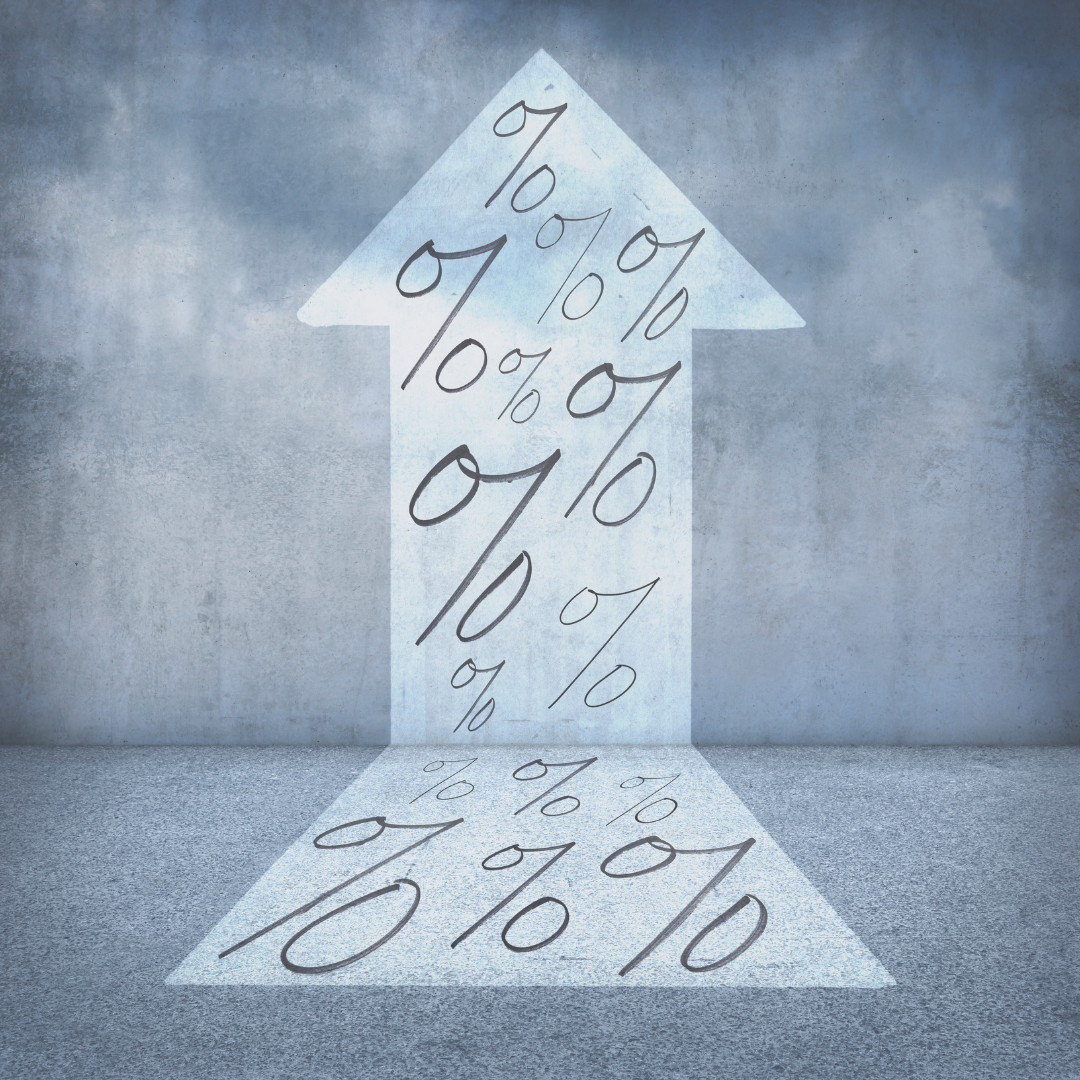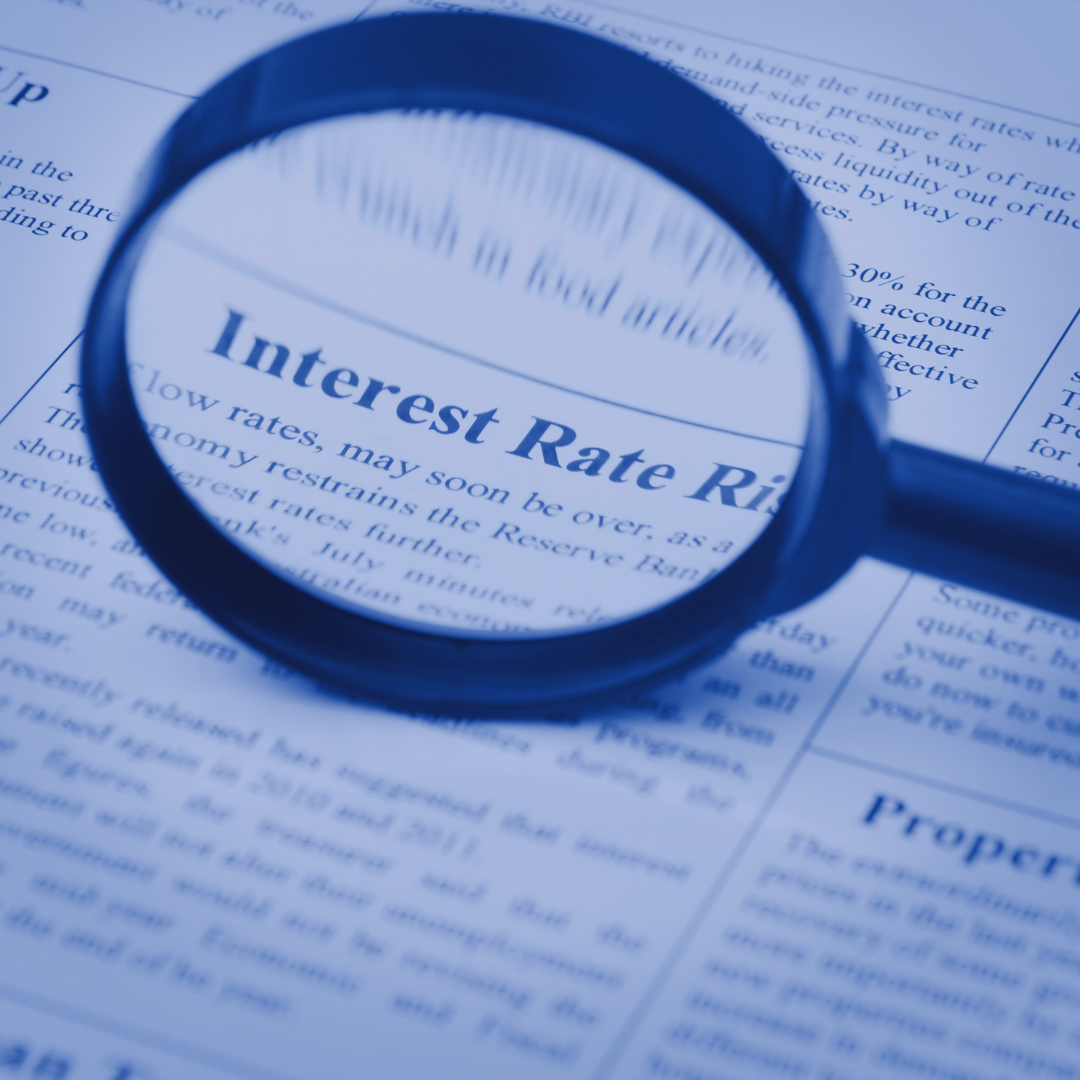How Do Rising Interest Rates Affect Me?
If you have watched the news or paid attention to any news source relating to our economy over the last month, you have probably heard words somewhere along these lines…“the Feds are meeting and are increasing interest rates” or “more interest rate hikes to come”. What does this even mean? Is it bad? Is it good? How will this affect my life?
Well, to back up just a little bit, it’s important to understand and realize why the Feds meet and why they make these types of decisions. When we say “the Feds”, we are referring to the Federal Open Market Committee (FOMC). It is made up of 12 individuals: the seven board of governors, the president of the regional New York Fed, and four other Reserve Bank presidents from throughout the country. The FOMC meets eight times a year to discuss the outlook for the US economy and also monetary policy. It is at these meetings that they make decisions like increasing interest rates.
Interest Rate Increases
It's no secret that the fed has been raising rates recently. Just recently, on June 15th, the Feds increased interest rates by 0.75%, which was the highest increase in 28 years. Why did they do this?
But how high will interest rates go? And what is the impact of an interest rate hike? For starters, it's important to understand that the fed funds rate is just one factor in determining the overall level of interest rates. Other factors include the yield on 10-year Treasury notes and the prime rate.
The fed funds rate is the rate at which banks lend money to each other overnight. When the fed raises rates, it becomes more expensive for banks to borrow money, which in turn raises the cost of borrowing for consumers and businesses. The prime rate, on the other hand, is the rate at which banks lend money to their best customers. So when the fed raises rates, the prime rate usually goes up as well. As a result, an interest rate hike can have a significant impact on both businesses and consumers. Businesses may find it more difficult to get loans, and consumers may see their credit card bills go up. So if you're thinking about taking out a loan or using your credit card, you may want to wait until after the fed has raised rates.
Impact of Interest Rate Hikes
“Fiat Wealth Management, how can this increase affect me?”
Great questions!! You aren’t alone in this, but here are 4 different ways this can affect you:
Increases can affect the stock market. Over the long term, studies and data have shown that the stock market rises when the Fed tightens monetary policy. In the short term, rate increases can have a more negative impact on the stock market because of the psychology of the FOMC raising rates. Traders can tend to sell quickly and get more defensive with their investments when hearing of increases.
Credit card interest becomes more expensive. When the Feds raise interest rates, consumer debt, like credit cards, tends to move in line with the Fed’s rate. Most credit cards have a variable APR, and since the cost of borrowing for banks gets more expensive in these environments, they can pass those higher borrowing costs to the consumer.
Mortgages and loans become more expensive. The Fed’s rate increases don’t directly affect mortgage rates, but tighter monetary policy affects the 10-year treasury yield, which does directly affect home loans. Student loans can also be affected. Private loans can be influenced by the Fed's rate.
Fed Rate increases are good for savings accounts. You may have already seen it, but the increase in the Feds rate can cause the APY (annual percentage yield) to eventually increase. This includes products like CDs, money markets, and savings accounts. What will determine how fast your bank will realize these increases all depends on where you bank. Online banks, smaller banks, and credit unions can tend to offer higher yields than larger banks.
What’s Next?
As I mentioned earlier, the FOMC meets eight times a year, and so far in 2022, they have met four times. This means they have four more times to meet yet this year. Some reports have suggested that the Feds could increase interest rates upwards of 3.50% total by the time they finish their December meetings (currently the Fed Funds rate is 1.5%-1.75%). When they met in June, they were expected to raise rates by 0.50% but ended up increasing them by 0.75%. It is tough to say what is going to happen at the remaining FOMC meetings, but one thing is for sure, more interest rate hikes are coming. That is not said to scare or frighten what is to come but to help educate and be informed and realize how these rate increases can potentially affect you in the coming months.
The Fed is raising rates because they want to control inflation. With more people working and spending money, the prices of goods and services are going up. This increase in prices is called inflation. By raising interest rates, the Fed can try to slow down or stop inflation from happening. In the meantime, stay tuned – we will continue to update our readers on changes in the economy as they happen.
This page is a publication of Fiat Wealth Management, LLC. The firm is registered as an investment adviser and only conducts business in states where it is properly registered/notice filed or is excluded from registration requirements. Registration is not an endorsement of the firm by securities regulators and does not mean the adviser has achieved a specific level of skill or ability.
The information presented is believed to be current. It should not be viewed as personalized investment advice. All expressions of opinion reflect the judgment of the authors on the date of publication and may change in response to market conditions. You should consult with a professional advisor before implementing any strategies discussed. Content should not be viewed as an offer to buy or sell any of the securities mentioned or as legal or tax advice. You should always consult an attorney or tax professional regarding your specific legal or tax situation.




